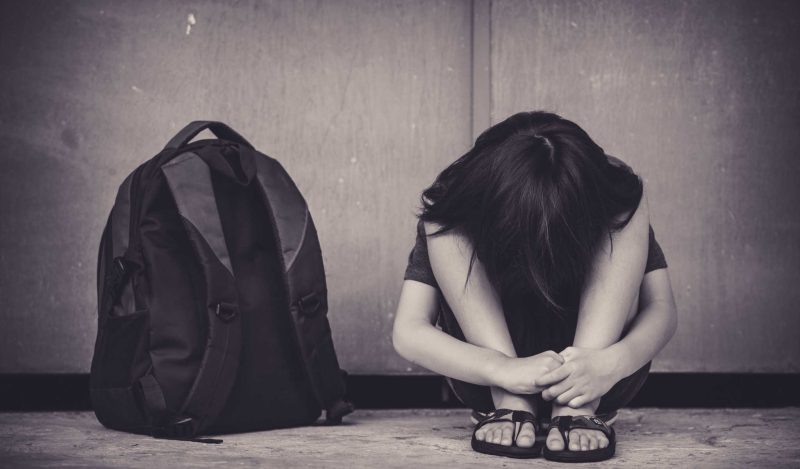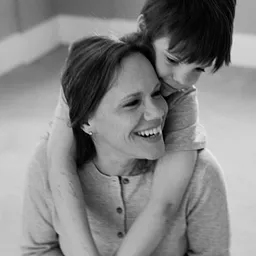People often ask me why I still care about school closures and other covid restrictions that harmed a generation of children. “Schools are open now,” they say. “It’s enough already.”
No. It’s not. The impact to this generation of children continues. And so do many of the restrictions impacting young people.
It was just this week that New York City public schools lifted the ban on unvaccinated parents entering public school buildings.
This meant a parent who was unvaccinated could not attend a parent-teacher conference in person. Or watch their child play basketball. They could, however, attend a Knicks’ game at Madison Square Garden with 20,000 other basketball fans. This rule seemed designed specifically to punish children.
Colleges are some of the last places requiring vaccination — even boosters, in some instances, like at Fordham University. These young adults are least at risk from covid, most at risk from vaccine-induced myocarditis and are some of the last Americans required to be boosted. It makes no sense.
Rather than do my own rant about why I still care about the lasting harm done to children, I’d like to let the kids and parents speak for themselves.
The teens and parents cited below are all featured in a documentary film I’m making. I want their stories told. This all needs to be documented because the narrative is already shifting:
“Yeah schools shouldn’t have been closed so long but how could we have known! It’s over now. Time to move on.”
“Let’s declare an amnesty. We need to forgive the hard calls people needed to make without enough information. Good people did the best they could!”
“The open-schoolers may have been right but for the wrong reasons so they’re still terrible people. And besides it’s not a competition! No gloating! Let’s focus on the future!”
But it’s not over. The kids are not alright. And there is insufficient focus on how to reintegrate them and help them recover. This article, from the New York Times on January 27, lays bare the harms done, the possible lifetime effects, and the lack of attention and care being paid to helping kids recover:
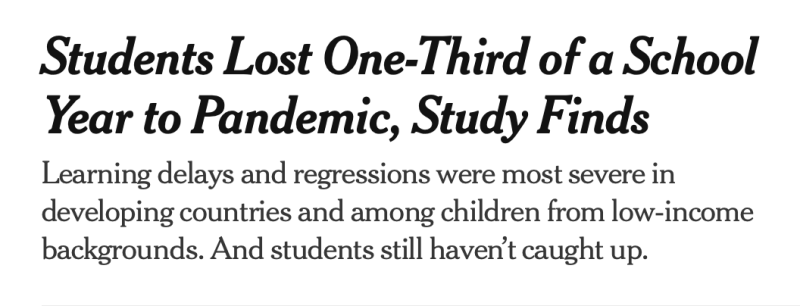
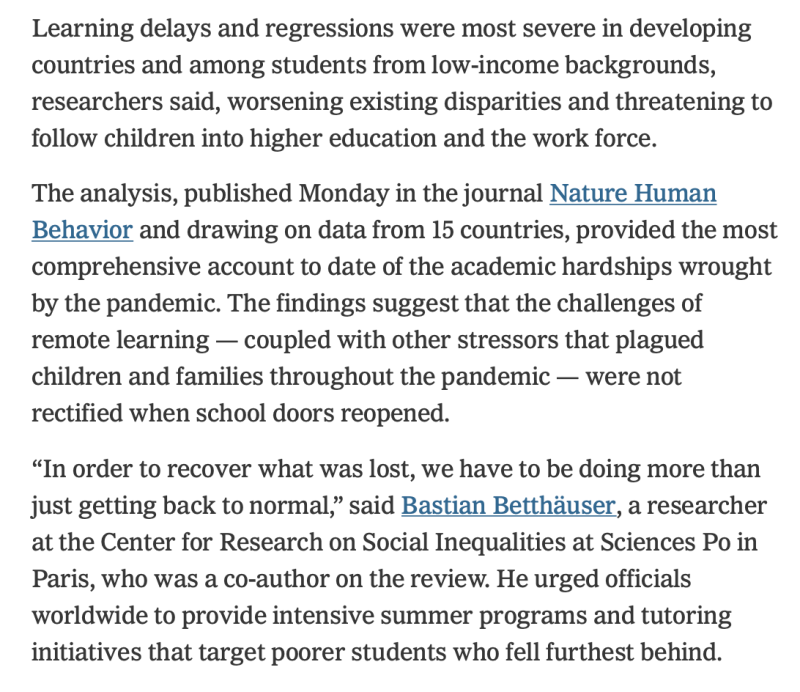
I will continue to advocate for them, to tell their stories, to try to get them the help they still need and deserve. And to ensure this never happens again.
It’s time we listened to the children and parents impacted.
Garrett “Bam” Morgan, Jr., high school student. Astoria Queens, NY:
“I was so upset. Why is it that someone who pays for school and has more money to throw around . . .why do they get to play football? And I don’t. What is the difference? Because we’re playing the same sport. It’s not like they’re playing something totally drastically different. It’s the same sport. We’re doing the same things, and they get to practice, they get to play. And I don’t, and for me it was just like, why? Why me? Why my teammates? Why is it that we don’t get to have fun? Why is it that we don’t get to play the sport that we love too? How am I going to get into a college if I don’t have a junior year of football?
“I was gaining weight. And I was getting in a place where I had to start thinking of alternatives to football, thinking of life without football. Then I would try and go out and play with my friends, towards 2021 when it started to become, okay, you can somewhat go out, just stay socially distanced. But by that time, the damage was done, right?”
Scarlett Nolan, high school student. Oakland, CA:
“I didn’t make any new friends. No one did. I mean, how could you, you’re just talking to literal black boxes on a computer.”
“I don’t wanna blame it all on school closures, but it’s been a really, really big thing for me. That’s changed my life so much. That’s not how it’s supposed to go in school. You’re supposed to have school. It’s supposed to be your life. School is supposed to be your life from kindergarten to senior year. And then you go to college if you want, but that’s supposed to be your life. That’s your education. You have your friends there, you find yourself there. You find how you wanna be when you grow up there. And without that, I lost who I was completely. Everything who I was. I wasn’t that person that worked to get straight A’s anymore. I didn’t care. I was just sad.”
Ellie O’Malley, Scarlett’s mom. Oakland, CA:
“She had finished her eighth grade. She had missed everything. She’d missed her graduation. She’d missed this trip to Washington. And then she started her new school [high school] on-line. [She was] very disengaged, never saw people’s faces, no one had the camera on. I mean it was school in like the thinnest most loose [sense] of the word. For the most part it was pretty dire and terrible. By January 2021, she really just no longer had the motivation to do it. She wasn’t getting out of bed. She was really depressed at that point.”
“A lot of it was just mental health, suicidal tendencies, self-harm. The first time Scarlett went to hospital, she kind of had a bit of a nervous breakdown. I’d never experienced that. She was screaming and clawing at herself. And we were like, what do we do? What do we do?”
Miki Sedivy, a mom who lost her teenaged daughter Hannah to an accidental drug overdose in 2021. Lakewood, CO:
“You’re taking children out of their natural environment of playing with each other, interacting socially and learning coping skills by interacting with other children. And when you take all of that away and all of a sudden these kids are in isolation, they mentally don’t know how to handle it. We can go [through] short times of isolation, but we’re talking a year and a half. [That’s] of a lot of isolation.”
Jennifer Dale. Her 11-year-old daughter has Down syndrome. Lake Oswego, OR.
“The school closures were devastating for her. I don’t think I realized it at first. At first I thought it was safer. Lizzie, a child with Down syndrome, was probably more susceptible to a respiratory virus. She’s had more respiratory issues than her siblings. So at first I thought it was the right thing to do As time went on, I don’t think people realized how isolated she was. She doesn’t have a means of reaching out and saying Hey, how you doing? I miss you. I wanna see you.”
“What Lizzie really needs is to look at her peers and how are they zipping up their jacket, or how are they coming in in the morning and making a food selection for lunch. That peer interaction and that peer role modeling is some of the best learning that my daughter can experience. But that role modeling is gone. When you’re online she doesn’t get to see what the other kids are doing. She wasn’t out seeing people. Nobody knew that she was struggling. It was all in our house. It was impossible for a young person with cognitive delays to understand why, why was the world suddenly closed? Why suddenly could I not see my friends? Why am I only seeing them on a screen and how do I interact?”
Am’Brianna Daniels, high school student. San Francisco, CA.
“As time moved on, like later in the year, I started to realize I really wanted to be back in school. I was 24/7 [on Zoom] and I think that’s what took a toll on me. . . I actually stayed doing Zoom in my living room that way I wasn’t tempted to fall asleep or anything. This did not help. I still did fall asleep sometimes.”
“I had like very little motivation to actually get up, get on Zoom and attend class. And then I think coming up on the year anniversary of the initial lockdown and then the lack of social interaction is kind of what took a toll on my mental health since I am such a social person. And so it really got to a point where I was just not going to class.”
“And it got really bad to the point where I was either over-eating or just not eating very much, and I was kind of dehydrated during my depressive moods. And eventually I did get in contact with the therapist. It helped a little bit, but not to the extent that I would have hoped.
Nelson Ropati, high school student. San Francisco, CA.
“I just didn’t like staring at a screen for an hour for class. I just couldn’t do it. I would fall asleep or just lose focus easily.”
“It wasn’t really mandatory to go to class. So I ain’t gonna lie. I didn’t really go to class the rest of my junior year when covid hit and they kind of just passed everyone.”
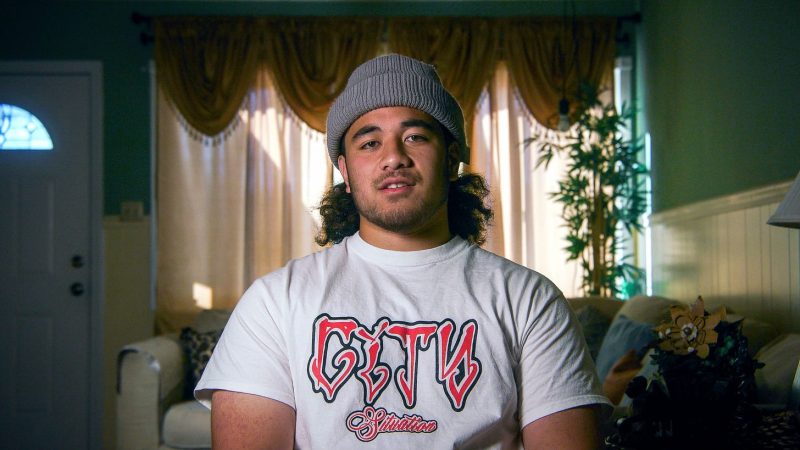
Lorna Ropati, Nelson’s mom. San Francisco, CA.
“I felt bad for him because then that’s when he started doing nothing else, but just like eating. I said you’re not hungry. It’s just a habit. Don’t go to the fridge. He just mainly stayed home and did whatever he could through his on-line courses and just stayed home. I think he didn’t go out of the house at one point for six months. He didn’t go nowhere. He never even stepped out of the house. So that was not good. I said, you need to get out, you need to stop being in this little shell and bubble that you’re in. It’s okay. You can go out.”
Jim Kuczo, lost his son Kevin to suicide in 2021. Fairfield, CT.
“Well we were very concerned because of the grades — that was the tip off. But again, it was hard because you can’t go out with your friends. We were concerned. We asked the guidance counselor and the therapist, is he suicidal? They said no.”
“You cannot treat kids like prisoners and expect them to be okay. I think that we, our leaders, put most of the burden on children.”
“I went through lots of guilt — what did I do to cause my son to kill himself.”
Kristen Kuczo, Kevin’s mom. Fairfield, CT.
“He [Kevin] wound up not playing football and then we kind of just started noticing he just was doing less and less. His grades were starting to drop. Really the biggest red flag for me was the grades dropping.”
“The day after he took his life, I was supposed to be having a meeting with the guidance counselors and we were looking into getting him a 504, which would allow him extra time to do things and possibly on exams. We were pursuing that as a possibility to try to help support him in the school setting. Because he had spoken to us about having trouble focusing and feeling like he just couldn’t do it.”
“All these doctors, they weren’t taking anybody. They weren’t taking patients because they were full. They didn’t have any space to take on new clients. It was shocking. So I didn’t have an appointment with a psychiatrist until about a week and a half after Kevin passed.”
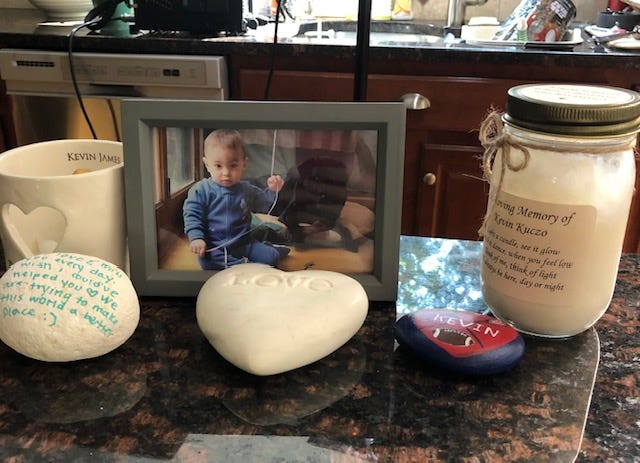
I’ll leave you with a few words from Garrett Morgan, Jr. He’s struggling to get his life back on track. To get his grades back up. To lose the 80 pounds he gained. To get back in shape. To play football again. To get that college scholarship.
He’s a fighter. And I have confidence he’ll succeed. But he won’t forget what he and his peers lost, what was taken from them, and how much tougher his road ahead is because of it.
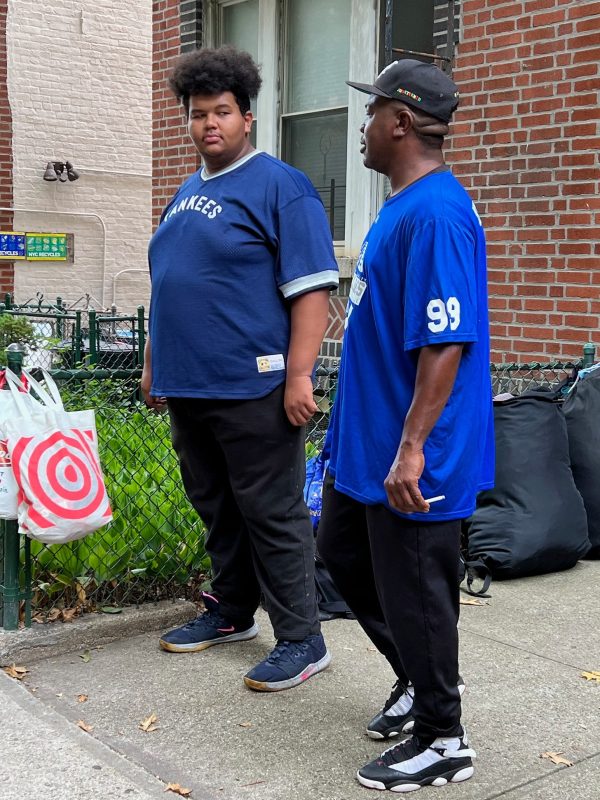
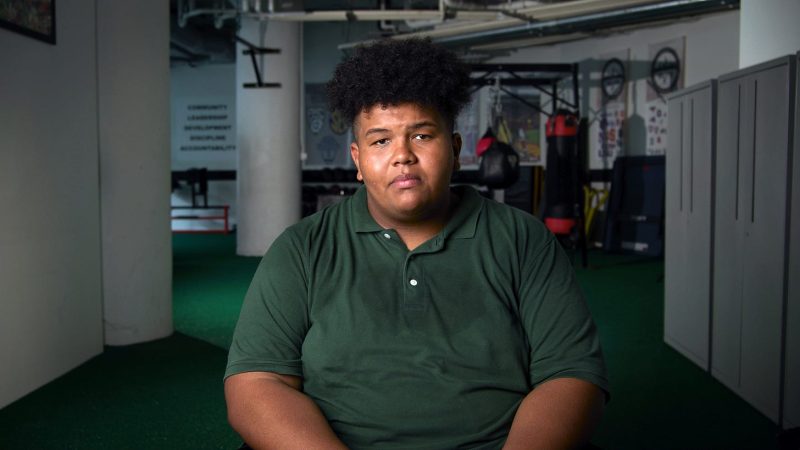
“This is something that my generation will not forget. This is also something that my generation will not forgive. The memories that we have lost, the experiences that we have lost, the skills that we have lost because of covid. And now we have to regain that and go out into the world. It is going to be something that will define us.”
Reposted from the author’s Substack
Join the conversation:

Published under a Creative Commons Attribution 4.0 International License
For reprints, please set the canonical link back to the original Brownstone Institute Article and Author.
